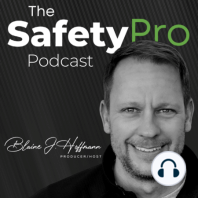37 min listen
091: What is Psychological Safety?
ratings:
Length:
19 minutes
Released:
Jan 27, 2020
Format:
Podcast episode
Description
Powered by iReportSource Why do employees sometimes remain silent when they should speak up? Do they fear consequences or repercussions? Do they feel like new ideas won't be considered without an onslaught of criticism about its inherent risks, a barrage of demands for a detailed project plan, or an insistence on immediate proof of an overinflated ROI? To be blunt, why do workers stay silent when they see things are being done improperly, or in an unsafe manner? Maybe because it's not safe to engage in such conversations, the benefit of saying nothing tends to outweigh the benefit of speaking up. Employees fear their feedback will be rejected, or that managers or even co-workers will go so far as to penalize them. So, they keep their heads down and their mouths shut. Think about cases where speaking up was stifled or just non-existent; the NASA shuttle disaster or workers at Volkswagen who failed to speak up about fake emissions numbers? Gallup's data reveal that only three in ten U.S. workers strongly agree that at work, their opinions seem to count. However, by moving that ratio to six in 10 employees, organizations could realize a 27% reduction in turnover, a 40% reduction in safety incidents, and a 12% increase in productivity. The term we have become familiar with as it relates to this issue is "psychological safety." Let's define it for this conversation; it is "a climate in which people are comfortable being (and expressing) themselves." It has been confirmed that psychological safety predicts quality improvements, learning behavior, and productivity. An internal study conducted by Google found that teams with high rates of psychological safety were better than other teams at implementing diverse ideas and driving high performance. They were also more likely to stay with the company. A culture of psychological safety enables employees to be engaged. They can express themselves without the fear of failure or retribution. Juxtapose this type of culture with one where employees feel too intimidated to speak up or share a new idea. It's hard to imagine these employees can mentally allow themselves to be engaged at work. Four Questions That Lead to Psychological Safety When looking at why things aren't progressing when it comes to creating a safe environment for folks to speak up, consider the following four questions: For what can we count on each other? What is our team's purpose? What is the reputation we aspire to have? What do we need to do differently to achieve that reputation and fulfill our purpose? The questions are designed to create a culture of psychological safety. Take note; the order is as important as the questions themselves. The first question speaks to strengths and is fundamental for establishing individual security before diving into the broader team psychological safety challenges. You may need to help them see a shared purpose and identity with others. Why do they come to work every day? What is the purpose of the production team, HR, safety, quality? How do they achieve that purpose together? Then, with that purpose and process in mind, what do they aspire to be known for in the company? What is the brand they want to create? This type of activity can help any team establish universal principles by which to work. Some of the ways the organization uses these principles are practical. For example, they use them to filter out and prioritize staff meeting agendas, based on whether agenda topics meet the principles. The HR team might use them when they interact with business partners, setting expectations, and accountability partners with its stakeholders. Sometimes, however, this all might be a little more theoretical. When a team member needs to ask for help, or bring a new idea or challenge to an existing process, they can couch their request in the language the team uses to describe its collective purpose or brand. The HR Manager or Safety Manager might use the team's principles to explain behavior
Released:
Jan 27, 2020
Format:
Podcast episode
Titles in the series (100)
019: Creating 13-Week Roadmap for Safety Projects: Staying focused on safety projects by The Safety Pro Podcast
